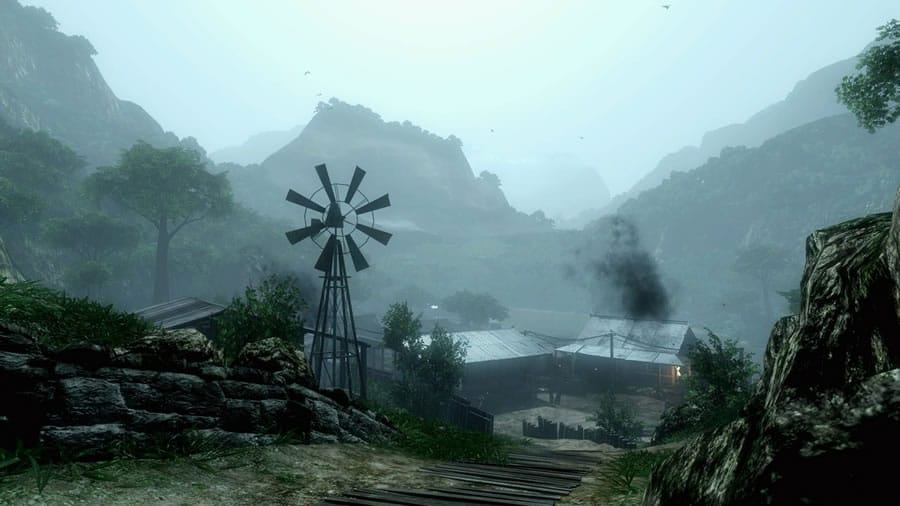
The “Heart of Darkness” Essay
The “Heart of Darkness” is a novel by J. Conrad, a classic of the English literature of the late XIXth and early XXth century. J. Conrad worked as a captain of the British passenger fleet, and that marine travel experience gave Conrad material for his literary works. For example, in 1890 Conrad got the job of captain in the Belgian trading company operating in Congo, then a Belgian colony. He went on his boat at 230 miles up the river Congo, and a diary of this trip in June-August 1890 formed the basis for the novel “Heart of Darkness” (1899 was made the journal version, and in 1902 it was published as a book).
This is the story of the narrator Charlie Marlow of his journey into the heart of equatorial Africa, to the trading station of the European company to pick up some goods there (in particular, ivory) and take out the ill agent of the company named Mr. Kurtz. “The heart of darkness” can be read as a story about the adventures of Marlowe in the heart of Africa, but it is distinguished by a complexity of organization, and the story can be perceived as b a philosophical tale about the problems of imperialism and the human nature.
The hero of Marlowe talks about being a captain in the colonial River company. It is necessary to point that in the building of the company in a boring European capital Marlowe was struck by two women, frantically knitting in the waiting room: he says that they are “guarding the gates of darkness, and seems to knit a shroud of black wool”. The reader can have an association, which is not directly suggested in the text, with the ancient goddess of fate, knitting threads of human lives. There is a feeling of predestination fatal events. On board of the ship, sailing to Africa, Marlow is shocked by indifference to human life, particularly by an absurd attack of the deserted shore from the French gunboats to pacify the natives, the rebels. His first impression of the arrival are six chained blacks, “criminals” who do not know their guilt.
A variety of scenes of death, violence, disease, treachery, savagery of blacks are the prelude to a trip to the station. There he is shocked by the ruthless exploitation of the local population, who were killed evilly for the avory: “The word ‘ivory’ rang in the air, was whispered, was sighed. You would think they were praying to it. A taint of imbecile rapacity blew through it all, like a whiff from some corpse. By Jove! I’ve never seen anything so unreal in my life. And outside, the silent wilderness surrounding this cleared speck on the earth struck me as something great and invincible, like evil or truth, waiting patiently for the passing away of this fantastic invasion.” (Conrad, 47)
Marlowe was curios about the new lands, hearing about the most extraordinary man of the colony. Marlow’s imagination seizes the figure of the lucky agent of the company, Kurtz, who alone delivers as much ivory as the other agents together. The created image of Kurtz breaks down when Marlow finally reaches the station, where Kurtz dies from dengue fever. Kurtz turns out to be evil and cruel hunter for the money: he kills tribesmen, he robs Africans ivory and has declared himself to them as a God: “Everything belonged to him–but that was a trifle. The thing to know was what he belonged to, how many powers of darkness claimed him for their own. That was the reflection that made you creepy all over. It was impossible–not good for one either–trying to imagine. He had taken a high seat amongst the devils of the land…” (Conrad, pg. 43)
In fact, “the messenger of mercy, science and progress” is the embodiment of evil. Evil is concentrated in the “heart of darkness” – the meaning of the title story is gradually revealed as a comprehension of the heart of black Africa, as a comprehension of evil in human nature.
There are social motives in the novel: the exposure of predatory exploitation of the colonies, anti-racist motives, evil as a part of the human nature. Marlow realizes that his loyalty to humanity goes against all this experience, and that there is no truth, no justice in the world; there is only idealism, selfishness, greed and fanaticism.
Some critics see “The heart of darkness” as one of the best exposures of imperialism, its hypocrisy and cruelty. The story was written in the last years of reign of Queen Victoria, who was proud of the fact that stood at the head of the most extensive and most highly moral of the ever-existing empires. The concept of “imperialism” was interpreted by the British as a “civilizing mission” of white people in countries that are not able to cope with their problems, who need help. But the notion of “colonialism” was not so sublime, it was primarily a commercial profit, the exploitation of foreign resources.
Marlow witnesses the crime of colonialism, and evil offenses against morality, inspired by the imperial ideology.

